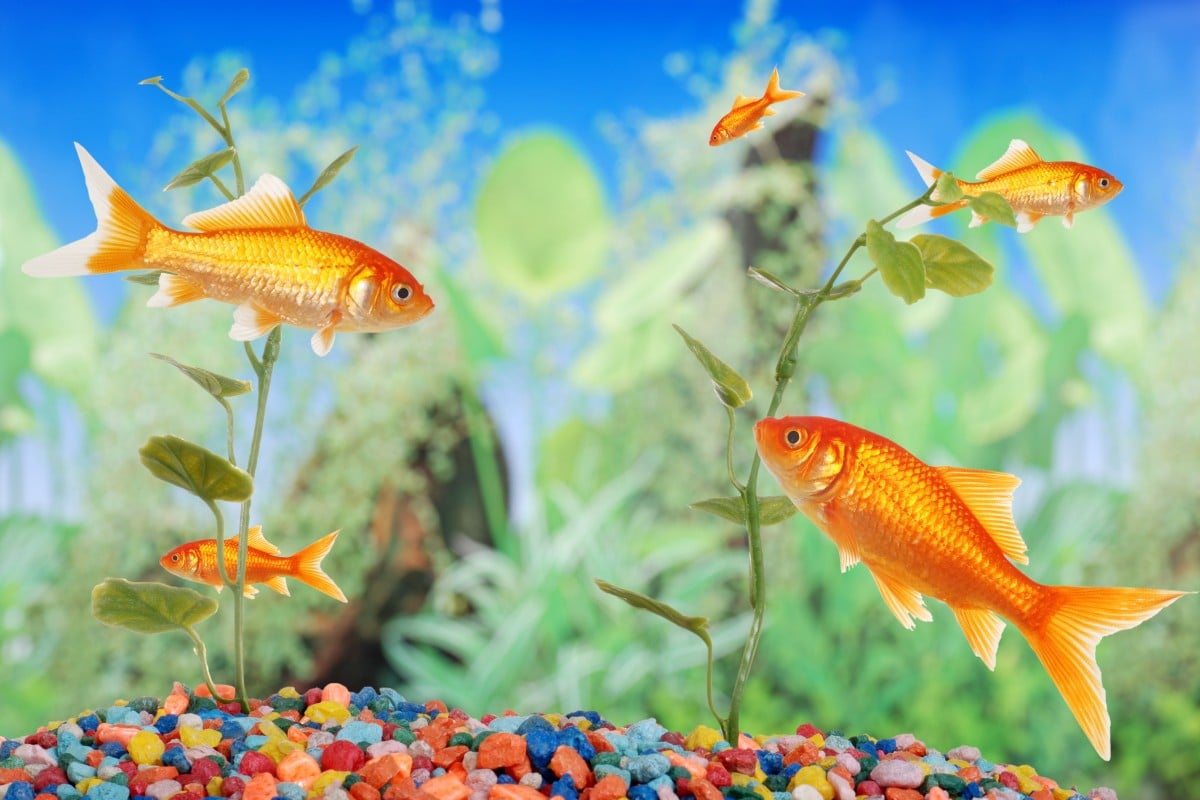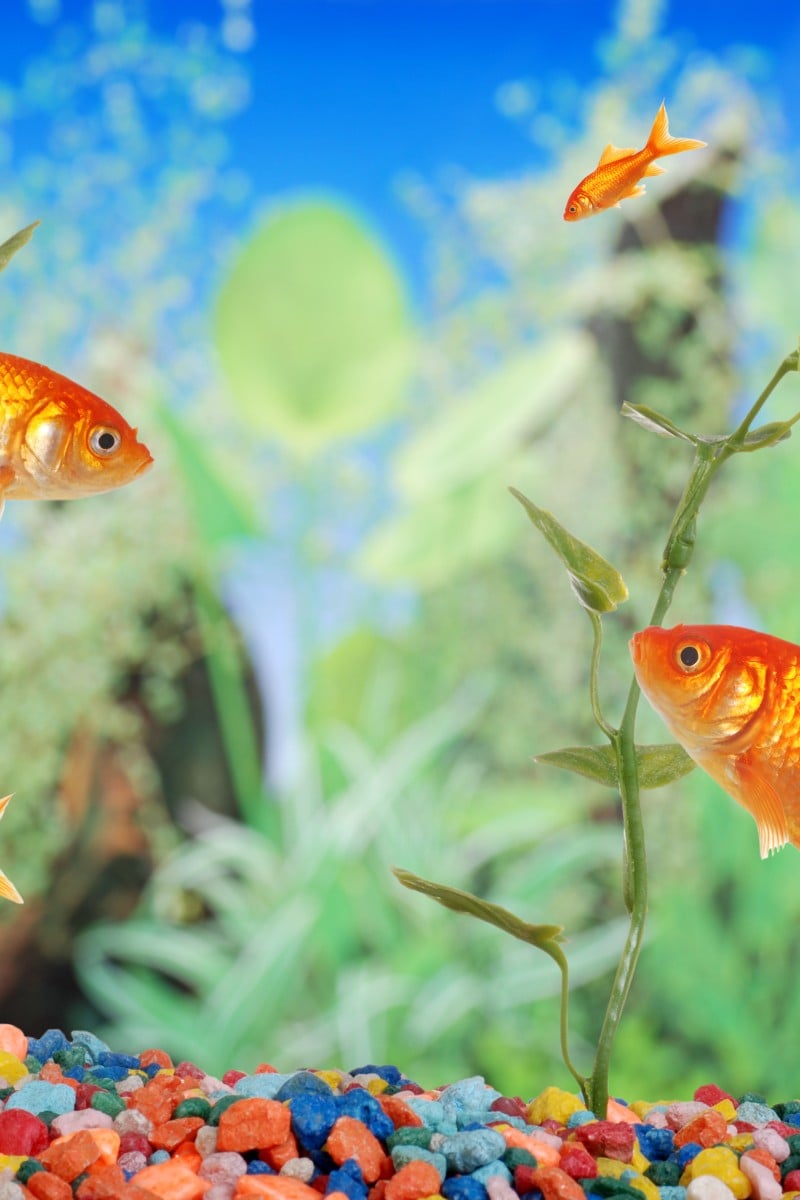- A vet explains how to figure out if one of Hong Kong’s most common pets is healthy or feeling stressed
- If your pal is rubbing up against its tank, that may be a sign it has a parasite!
 Keep your fishy boi happy and healthy with these tips.
Keep your fishy boi happy and healthy with these tips.Have you ever looked at your pet and thought, “Just what is going on in that brain of yours?” Well, Young Post has been getting the low-down from vets and other animal experts to help you interpret your companion’s behaviour and what it could be thinking.
This week, we’ll learn about one of Hong Kong’s most beloved pets – our city even has a market named after a species of fish. Find out how these commonly misunderstood creatures let us know if they are feeling happy and healthy and whether they might be in need of a tank upgrade.
What is my red eared slider up to?
Swimming in a different spot
When trying to determine if your pet fish is thriving, it is important to know how its species behaves in the wild. If your fish is spending more time in a different part of the tank than it should, this may be a sign it is sick.
Most fish will swim in a specific part of the water – bottom feeders like catfish spend most their time at the bottom of the tank searching for food. Surface feeders such as the arowana like to hang around the water’s surface waiting for their next meal to come along.
How to decode hamster behaviour
In an aquarium, your fish may also swim erratically if there is a dangerous electric current in the water. Although this situation is not common, it may happen if the fish tank’s filter or heater is broken, or if the lighting on the tank comes in contact with the water. To prevent this issue, you should check your aquarium heater for any cracks or loose wires, but always make sure you have an adult with you to make sure you are safe when handling electronics in water.
They may also swim erratically if there is a free electric current in the water. Although not too common, this may happen if the filter or heater in the tank is broken, or if the lighting on the tank comes into contact with the water. As such, it is important to check your aquarium heater for any cracks or loose wires to prevent this issue, and always make sure you’ve got an adult with you.
Rubbing or banging against items in the tank
If you notice your fish swimming up against objects in the tank to rub or bang against them, it might be trying to rub off a parasite that is making its skin itchy.
When this happens, check its body for tiny white specks – if you see them, get help from a vet who specialises in aquatic life. This problem is usually cured by quarantining the affected fish in a separate tank and adding special salt or medication into the water.
Gasping at the surface
Unfortunately, this is not how fish say hello. This could actually mean there is not enough oxygen in the water, though this isn’t applicable to every species.
Some fish, like bettas, can breathe air and will often come up to the water’s surface for a breath of fresh air. But if you see other fish making their way up to the surface and gasping, increase the tank’s water circulation so there is more oxygen in the water. This can be done by adding an air stone, air pump or hang-on-back (HOB) filter. If these don’t help, you should bring your fish to the vet immediately.
Swimming alone
Smaller fish such as tetras swim in groups called “schools” to protect themselves against predators and increase their chances of finding a mate and food. If you see a lone tetra hanging by the side of the tank or swimming on its own outside the group, it is likely sick or injured.
Swimming actively
Most pet fish that are happy and comfortable spend less time hiding and more time moving around. And just like humans, happy fish usually have a vibrant glow which is a sign of good health. Keep up the good work!
Your guide to six weird cat behaviours
Looking lethargic and refusing food
Just as you might suspect, your pet fish may be feeling unwell if it seems lethargic and refuses food. There are many reasons why it might be sick, but the most common causes are poor water quality, incorrect temperature or stress.
It is important to make sure you have the right environment for your fish by using the proper water filters and closely monitoring the water quality. Fish can be stressed because of low oxygen levels, improper temperature or pH, or high levels of ammonia, nitrite, or nitrate.
Fish also need ample space to move, and if you’re adding new residents to the tank, you may need to consider getting a bigger tank.
Answers provided by Colin McDermott, veterinary surgeon at Zodiac Pet and Exotic Hospital in Hong Kong

